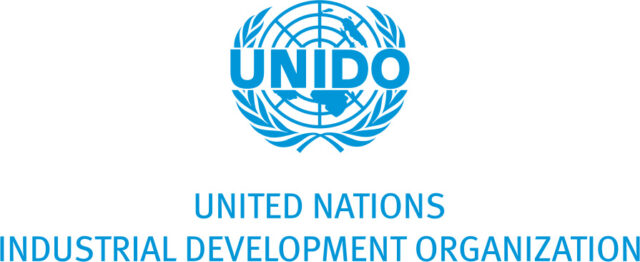UNIDO is a specialized agency of the United Nations with a unique mandate to promote, dynamize and accelerate industrial development. Our mandate is reflected in Sustainable Development Goal (SDG) 9: “Build resilient infrastructure, promote inclusive and sustainable industrialization and foster innovation”, however UNIDO’s activities contribute to all the SDGs. UNIDO’s vision is a world without poverty and hunger, where industry drives low-emission economies, improves living standards, and preserves the livable environment for present and future generations, leaving no one behind. Our work is concentrated on three focus areas: ending hunger by helping businesses from farm to fork; stopping climate breakdown by using renewable energy and energy efficiency to reduce industrial greenhouse gas emissions; and supporting sustainable supply chains so that developing country producers get a fair deal and scarce resources are preserved.
The United Nations Industrial Development Organization (UNIDO) assists countries to join and benefit in the transition towards a regenerative circular bioeconomy through targeted technical cooperation services in both food and non-food sectors. UNIDO applies food-energy-water nexus solutions to challenges of climate change mitigation and adaptation, reduction of food loss, and the objective of ending hunger.
UNIDO’s initiatives focus on maximizing the use of sustainably sourced biomass, including agricultural residues, industrial by-products, and food waste. By transforming these materials into value-added products such as bio-based chemicals, organic fertilizers and bioenergy, UNIDO helps countries reduce waste, lower greenhouse gas emissions, and enhance resource efficiency through cascading use of biomass. This not only supports environmental sustainability but also boosts economic competitiveness and job creation.
UNIDO promotes the adoption of innovative technologies and practices that improve agricultural productivity and resilience. This includes for example optimizing water use and integrating renewable energy sources to power agriculture. Food loss and waste is reduced through introducing improved dry- and cold- storage facilities and better processing and preservation techniques, including sustainable packaging. In the non-food sector, UNIDO supports the development of bio-based industries that utilize biogenic by-products, thereby creating new market opportunities and reducing dependency on fossil fuels. UNIDO’s technical cooperation services help countries build sustainable and resilient economies. These efforts contribute to climate change mitigation, reduce land degradation, enhance biodiversity conservation, and the overall well-being of local communities.



